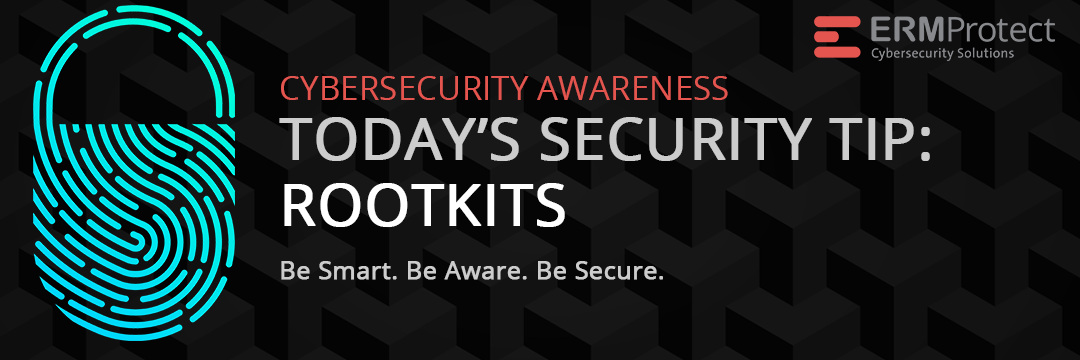Cyber Tip of the Day - Rootkits
Happy Monday! We would like to start your week with a tip to stay safe while online. Today’s subject: Rootkits.
Rootkits open up a “backdoor” into a computer system. Once they’re installed, they let in other viruses or hackers who can then force a cyber attack and infect your machine or steal information. Rootkits give hackers the ability to take complete control over your machine.
Here are some cybersecurity tips to protect yourself:
- To improve your cybersecurity awareness pay attention to abnormal system behavior such as failure to respond to keyboard input, surges in network traffic, or frozen screens.
- Switch off your devices when you’re not using them.
- Consider disconnecting from the Internet when you are not working online.
- Use a good anti-virus solution that has anti-malware and anti-phishing capabilities.
- Use strong passwords. Rootkits often breach systems due to weak passwords set on root or administrator accounts.
- Be cautious when clicking on links or opening attachments in email or online posts, or when downloading unknown applications. These are the common entry routes for rootkits and often lead to a cyber attack.
Be Smart. Be Aware. Be Secure. ERMProtect.

Get a curated briefing of the week's biggest cyber news every Friday.

Turn your employees into a human firewall with our innovative Security Awareness Training.
Our e-learning modules take the boring out of security training.
Intelligence and Insights

Red, Blue, & Purple Teaming: Unified Strategy Organizations Can’t Ignore
One way of strengthening defenses is through a multifaceted security testing approach known as Red, Blue, and Purple Teaming …

Quantum Computing Puts Today’s Encryption at Risk
Security experts warn that hackers are already harvesting encrypted data to decrypt later, making quantum safe cryptography an urgent priority for every sector …

Are You Prepared for an AI-Powered Cyber Attack?
The question is no longer whether AI will impact cybersecurity, but whether organizations are prepared for the reality of AI-powered cyberattacks …
